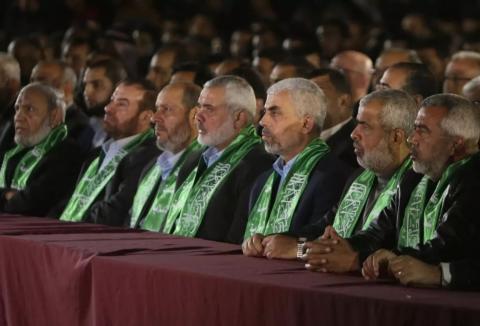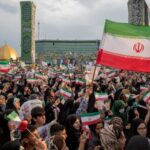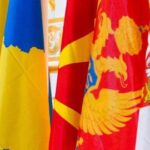Summary by Geopolist | Istanbul Center for Geopolitics
The toing and froing of proposals and counterproposals for a ceasefire in Gaza has been going on for months now. The talks between the Israeli government and Hamas, however, have never really been about numbers: how many hostages to release, which ones, in return for how many and which prisoners, and how many days of truce. The sticking point is another: Hamas calls for the end of the war, and the Israeli government for the end of Hamas. This means that, in reality, the stand-off is all about the “day after”. How can a government be established in Gaza that ensures freedom and development on one side, and security on the other one?
And yet, that’s what no one has been working on. While most mediators admit by now that Hamas will not be destroyed, in the ceasefire talks the issue of the “day after” continues not to be factored in.
A question of political agency
In the dock there is especially Benjamin Netanyahu. But ultimately, from the Palestinian perspective, Netanyahu plays his role: the role of the enemy. He pursues his own interests. And the Palestinians have been clear from the beginning: they want to master their future. They do not want the Israel Defence Forces (IDF) to stay in Gaza, but neither do they want for it to be replaced by the United Nations, or Arabs countries. And rightly so. But they have not said much else. And of the famous national unity government that they swear is almost ready, there is no trace. For the record: that’s what they have been swearing since the start of the rift between Fatah and Hamas, and the first of many attempts at mending it, the Prisoners’ Document drafted by Marwan Barghouti. It was 2006.[1]
Vladimir Putin too tried to mediate with a reconciliation summit. Even Xi Jinping. But obviously, the most active are the Arab countries. Contrary to appearances, yet, they are the least suited to such an effort. First, because they support, and often fund, this or that faction, this or that figure, and thus, they are not seen by the Palestinians as neutral. Second, and above all, because they are not democratic countries. How can we expect the Palestinians to form a legitimate and representative government with the advice of Egyptian president Abdel al-Sisi, who has no such government in Cairo? Or of the government of the Emirates, whose parliament is only consultative? Or of Saudi Arabia, where people do not even vote? Indeed, these actors are all focused on the reconstruction. Nothing else.
But the priority is another: Palestinians must be again a political subject. Elections were last held in 2006. The term of Mahmoud Abbas, who is 88 years old, in a population whose average age is 21.3, expired in 2009. And in 2018, the Legislative Council was dissolved. From then onwards, Mahmoud Abbas has ruled by decree.[2] Alone. Since 7 October, he has still never addressed the Palestinians.
Bringing the Palestinian Authority out of the doldrums
It is a deeper issue, of course. The Palestinian Authority has structural flaws that derive from the very Oslo Accords it was established by: giving the Authority many responsibilities and little power. Under occupation, it is not easy to be a political subject. With the territorial fragmentation and the unrelenting raids and round-ups, it is a challenge just to meet. But it is inescapable: the “day after” demands first and foremost a radical change, a change at the top. While so far, Mahmoud Abbas’ only innovation has been the appointment of a new prime minister, Mohammad Mustafa – his main advisor.
This time, there is really national unity. The name agreed upon is that of Nasser al-Qudwa, a veteran diplomat from Fatah, but from Marwan Barghouti’s Fatah – as well as Yasser Arafat’s nephew. Firm and determined, but never uncompromising, he is used to dealing with Israel, and above all, with Hamas: to which he openly asked for evolution. An evolution some in Hamas say they are ready for, should there be a similar evolution on Israel’s side: according to its 2017 Charter, while revendicating the Palestinian right to an “integral territorial unit” from the River Jordan to the Mediterranean, and from Ras al-Naqurah in the North to Umm al-Rashrash in the South, Hamas states (art. 20) that it “considers the establishment of a fully sovereign and independent Palestinian state, with Jerusalem as its capital along the lines of the 4th of June 1967, with the return of the refugees and the displaced to their homes from which they were expelled, to be a formula of national consensus.”[3]
According to Mousa Abu Marzouk,[4] who is in charge of its International Relations, and other senior members, Hamas is now ready to take a step back, to enter a national unity government, and in perspective, also to lay down arms.[5] I might be wrong: but of all the Hamas leaders I have met, Yahya Sinwar is the least ideological. He insists that the Arabs serve Palestine, not the other way around, and has a primary goal: the end of the Occupation.[6] This does not mean that Hamas recognises Israel’s right to exist, neither does it mean that it does not support the idea of “Palestine from the river to the sea”. It simply means that repeated statements by Hamas’s leaders suggest that this goal is not within reach.
What Europe can do
That’s where Europe comes in. In the Middle East, the European model of society is largely viewed as a role model. Guarantee of rights, protection of minorities, welfare systems, true elections: it is an example for many. You go to the Gulf for the salary, you are told by the twenty-year-olds looking for a visa: but for life, you go to Europe. No one has more authority, and more skills, to help the Palestinians outline a strategy for the “day after”. Europe knows how to form a national unity (or a coalition, or a caretaker) government.
What’s more, Europe has close and longtime relationships with the Palestinians. Relationships that are not just institutional, but personal – and thus, independent of the political orientation of those in power. Why did Ireland, along with Spain and Norway, just recognise the State of Palestine? Because of the Troubles, of course, of the sensitivity of those who have experience of war, but also because of the relational capital built over the years by Nobel Peace Prize laureate Mairead Maguire.[7] Ministers and prime ministers and presidents, past and present, diplomats, academics, activists, NGOs, parties, think tanks: those the Palestinians trust, and listen to, are many.
Time to make a difference (in Ramallah)
The Palestinians fear that by forcing Mahmoud Abbas to step down, together with all the cronies mentioned in the Panama Papers, there would be street-fighting. But Mahmoud Abbas is 88 years old: he will soon be forced out anyway.
And with no deal, what will happen? Spend a night in Jenin Hospital: with so many M16s around, there are more casualties from family feuds than from IDF raids.
So far, Europe’s actions have just resulted in importing and amplifying the conflict, splitting into pro-Israelis and pro-Palestinians. It’s time for Europe to do its part. And make a difference. Because to prepare the ground for the “day after”, the main stumbling block is not in Gaza; it is in Ramallah.
Francesca Borri is an Italian journalist specialising in the Middle East. She writes for La Repubblica and for Yedioth Ahronoth, Israel’s largest newspaper.
[1] The Prisoners’ Document was signed in 2006 by all most influential Palestinian prisoners following Hamas’s victory in the legislative elections. It calls for a national unity government within the PLO framework. See Marwan Barghouti et al., National Conciliation Document of the Prisoners, 28 June 2006, https://www.un.org/unispal/?p=208621. It was the first of many reconciliation attempts, up to the Cairo Declaration of 2021, when Fatah and Hamas agreed on a new proportional electoral law and called for new elections – later annulled by Mahmoud Abbas. See ECFR web project: Mapping Palestinian Politics: Legislative Elections (2021) – Cancelled, https://ecfr.eu/special/mapping_palestinian_politics/legislative-elections.
[2] Kali Robinson, “Who Governs the Palestinians?”, in CFR Backgrounders, last updated on 28 May 2024, https://www.cfr.org/node/250515#chapter-title-0-5.
[3] “Hamas in 2017: The Document in Full”, in Middle East Eye, 2 May 2017, https://www.middleeasteye.net/news/hamas-2017-document-full.
[4] “Senior Hamas Leader: We Seek to Join the PLO and Be Part of Its Commitments”, in Al Quds, 14 December 2023, https://www.alquds.com/en/posts/104169.
[5] Abby Sewell, “Hamas Official Says Group Would Lay Down Its Arms If an Independent Palestinian State Is Established”, in AP News, 25 April 2024, https://apnews.com/article/4912532b11a9cec29464eab234045438. See also Mustafa Barghouti, the main Fatah-Hamas mediator, in this interview with German daily TAZ in January 2024: Francesca Borri, “Hamas ist Teil unserer Gesellschaft”, in TAZ, 27 January 2024, https://taz.de/!5986884.
[6] Francesca Borri, “Gaza. It’s Time for Change”, in Il Venerdì di Repubblica, June 2018, https://www.europeanpressprize.com/?p=9963.
[7] Website of the World Summit of Nobel Peace Laureates: Mairead Maguire, https://www.nobelpeacesummit.com/?p=4691.
Source: Istituto Affari Internazionali







